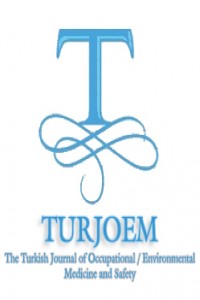Abstract
Lithium is a
mood-stabilizing agent used in the treatment of bipolar disorders. Uncertainty
is a parameter associated with the results of a measurement, that characterizes
the distribution of the values that could reasonably be caused from the
measurand. The objective of this study is to calculate measurement uncertainty
of lithium by using internal quality control data and inter-laboratory results
to compare these calculated measurement uncertainties with total allowable
error % (TEa %) value of CLIA'88 and RILIBAK.
Internal quality
control data were collected between March 2015 and February 2016. For the
estimation of bias inter-laboratory comparison was carried out. Measurement
uncertainty of lithium was calculated in accordance with ISO21748 guideline. Lithium
levels were determined in Roche Cobas Integra 800 analyzer by colorimetric
method.
Internal quality
control coefficient of variations (CV) were calculated 2.67 and 2.37 in low and
high level internal quality control serums respectively. Total allowable error
value of lithium was 10.05% and not higher than desirable TEa% values of
CLIA'88 and RILIBAK.
Lithium exhibits
a narrow therapeutic window and its toxic concentrations (>1.5 mmol/L) are
very near the upper threshold for effective therapy (up to 1.2 mmol/L). For
this reason, uncertainty values play an important role in differentiation of
patient’s state and medical care. Uncertainty of measurement system TEa% values
are important for patient results and they should not exceed desirable values.
Clinicians
should be informed about uncertainty of drug to give proper medical care.
References
- Betul OZBEK, Serpil ERDOGAN, Ceylan BAL, Orhan SEN, Pervin BARAN, Ozcan EREL
- Ataturk Training and Research Hospital, Department of Clinical Biochemistry, Ankara, Turkey Yildirim Beyazit University Faculty of Medicine, Department of Public Health, Ankara, Turkey
Abstract
References
- Betul OZBEK, Serpil ERDOGAN, Ceylan BAL, Orhan SEN, Pervin BARAN, Ozcan EREL
- Ataturk Training and Research Hospital, Department of Clinical Biochemistry, Ankara, Turkey Yildirim Beyazit University Faculty of Medicine, Department of Public Health, Ankara, Turkey
Details
| Journal Section | Articles |
|---|---|
| Authors | |
| Publication Date | February 16, 2017 |
| Published in Issue | Year 2017 Volume: Volume 2 Issue: İssue 1 (1) - 2.İnternational Congress Of Forensic Toxicology |

